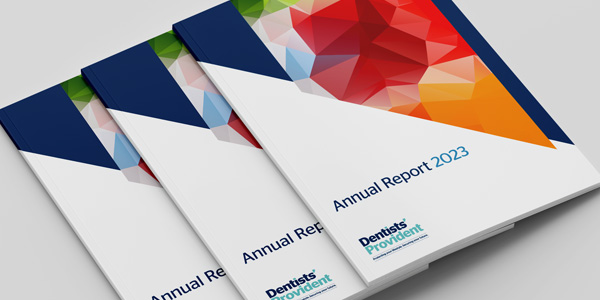
With the leaves starting to change to red and gold, signifying that autumn is creeping in, you might feel that your summer allergies should soon be over, however you may still have to be wary of hay fever as weed pollen is also a common cause of allergies in the autumn. Other allergies, particularly those related to food, are on the rise as well, so it’s something to look out for in yourself and your patients.
Allergy update
Allergy UK, a national charity supporting an estimated 21 million allergy sufferers in the UK, reported that the introduction and increased use of vaccinations and antibiotics contribute to the fact that our immune systems are reacting to allergens, because they have not been stressed by fighting the infectious diseases of the past. It has long been thought that allergies have become far more common as we have become more hygienic, due to the use of anti-microbial cleaners. This ‘hygiene hypothesis’ causes great debate between scientists around the world.
Other main reasons cited for the increase in allergies are:
Have you also noticed that when you book a table in a restaurant they ask if you have any food allergies? A couple of years ago all restaurants and food outlets had to comply with the EU Food Information for Consumers Regulation. This called for allergen information to be much clearer on packaging and readily available to consumers. With over a third of the UK population now suffering with some form of allergy, it’s no surprise that these rules and regulations are now fully in effect. The question is, how long will it be before the dental professions have to provide their patients with potential allergen information?
Food allergies
A food allergy is the body’s response to a food triggered by our immune system because it thinks it’s dangerous, compared to a food intolerance which is the body’s inability to digest it properly. Only 6-8% of the child population and 4% of the teenager and adult population are actually allergic to certain foods, the main culprits being (for both groups) peanuts and tree nuts, eggs, milk and (except children) shellfish.
We need to be clear however that we are treating our reactions correctly. Many people have now taken on a gluten free diet however research has shown that this is both unhealthy and unnecessary unless you have an allergic autoimmune condition, such as coeliac disease. In fact the long-term avoidance of gluten could also have a cardiovascular risk.
Allergies in practice
Dentists’ Provident have paid claims of varying amounts to dentists who have had to take time off work due to asthma or allergies. These are a few of the more common allergies usually encountered by dentists and their teams.
Natural Rubber Latex (NRL)
Latex gloves are well known for causing allergic reactions, but there is also a lot of other dental equipment that may contain NRL such as amalgam carriers, endodontic stops and even temporary crowns. So if you or a member of your team develops an allergy, it may be more than just your gloves you need to switch. Plus if staff already have irritated skin from frequently cleaning their hands or wearing occlusive gloves, especially if they suffer with asthma, hay fever or flexural eczema, then they are also more likely to develop an allergic reaction to latex.
Visit the Latex Allergy Support Group website for NRL-free alternatives, factsheets and other resources for your practice https://www.anaphylaxis.org.uk/dental-practice/
Your patients are at risk as well so while you are taking their medical history, you could ask them for any allergy information. For example, people with spina bifida have a higher chance of developing a latex allergy.
Asthma
It is important that everyone in the dental team is aware of how to deal with an asthmatic patient in practice and how to manage an emergency. It has been suggested that a patient with asthma requires special attention, and a dentist should implement strategies which could prevent an acute attack and be prepared to manage an emergency.
But it’s not just your patients who are at risk; all dental care workers are at risk of developing occupational asthma. Occupational asthma is a disease caused by prolonged exposure to respiratory sensitisers. Inhaled over a period of time, these sensitisers cause asthma symptoms that can lead to the development of severe chronic asthma if exposure were to continue. One example of a respiratory sensitiser is Glutaraldehyde, a chemical commonly used to sterilise surgical equipment. Another is the dust from latex rubber.
The Health and Safety Executive (HSE) publish and update a list of the main respiratory sensitisers although it is acknowledged that there are over 200 known respiratory sensitisers, with more being added all the time.
Anaphylaxis
There are several reactions that allergies can cause. One of the most severe is anaphylaxis/ anaphylactic shock. The Resuscitation Council (UK) has specific guidelines for healthcare providers on how to deal with this life threatening medical emergency.
The NHS Choices website lists some of the signs of anaphylaxis:
Patients who have had this reaction before will more than likely have an injection with them, which should be administered right away. If they pass out, they should be put into the recovery position until paramedics arrive. Training is available for you and your team, so that you are all prepared in the case of an emergency. The Resuscitation Council UK’s document ’Quality standards for cardiopulmonary resuscitation practice and training’ provides guidance for dental professionals.
Awareness
With allergies on the rise and annual awareness weeks to increase understanding of the issues, you have a great opportunity to focus your team on the risks, causes and effects of allergies on your patients.
References available on request.
This article is intended for information only. It is not designed to give financial or medical advice, nor is it intended to make any recommendations of the suitability of our plans for a particular individual. Full details of our contract can be found in our rules on our website www.dentistsprovident.co.uk. Dentists’ Provident Society Limited does not accept liability and responsibility for changes made to this information. Some of the information in this article has been obtained from third parties. While we believe the information to be reliable; we make no representations as to its accuracy and accept no responsibility or liability for any error, omission or inaccuracy in the data supplied by any third party.
If you have any questions, please contact our member services consultants by emailing press@dentistsprovident.co.uk or calling 020 7400 5710.
If you have any questions, please contact our member services consultants by emailing
memberservices@dentistsprovident.co.uk or calling 020 7400 5710.

Our 2024 Annual General Meeting will be held at 91-94 Saffron Hill, London, EC1N 8QP on Friday 24th Ma…
Read more
The 2023 annual report from Dentists’ Provident, a leading income protection provider for dental profe…
Read more
Our next exhibition is the British Dental Conference & Dentistry Show in May, where we look forward to meeting anyone interested in becoming a member or members wanting to discuss their plans.